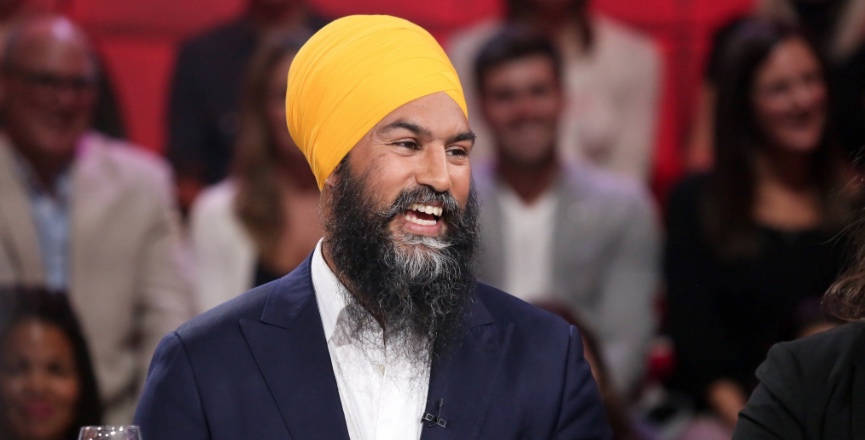If the deal the federal Liberals and New Democrats seem to have cooked up to keep the Trudeau government in power until 2025 in return for national pharmacare and dental care programs turns out to be for real, brace yourselves for a spectacular national tantrum by the Conservatives led by, well, whoever.
The new leader of the party of Stephen Harper may not have been chosen yet, but his or her reaction is a certainty. Expect to hear the word “coalition” a lot, delivered with a snarl and a curled lip.
You’ll also be hearing how a deal to maintain the confidence of the House of Commons long enough to establish some national programs of value to the Dominion is “undemocratic,” even “dictatorial,” and undoubtedly “socialistic.”
Indeed, Conservative interim leader and soon-to-be Stornoway resident Candice Bergen has already called the idea “an NDP-Liberal coalition”—note the order of the putative partners—and complained loudly that “Canadians did not vote for an NDP government.”
Well, not to worry, they won’t be getting one—but if a few sound policies result, it’ll be a darn sight better than a kick in the pants, or, God help us, several years of destructive Conservative austerity.
And while it also won’t be a coalition, if conditions are created that could someday lead to the election of a NDP government in Ottawa, well, so much the better!
To borrow a phrase from Brian Topp, such a deal might also prevent the next year or so in Canadian politics from degenerating into an “uninspiring slanging match between Prime Minister Trudeau and a coalition of unattractive Trumpian provincial Tory Premiers fronted by their federal errand-boy”—whoever that turns out to be, regardless of gender.
Mr. Topp, of course, is the NDP strategist, leadership contender and sometime chief of staff to Alberta New Democrat premier Rachel Notley who played a key role in the Liberal-NDP deal in the fall of 2008 that with a little help from the Bloc Quebecois could have spared us several painful years of Stephen Harper.
Alas, Mr. Harper managed to avoid a confidence vote in the House by bullying then Governor General Michaëlle Jean into proroguing Parliament before it could be held—a genuine offence against Canada’s democratic tradition. How the deal came unstuck is a story for another day.
Of course, there will also be some predictions from what’s left of the shrinking social democratic base of the NDP that this will spell R.I.P. for the party.
The experience of Ontario in 1985 suggests otherwise, however. That was when provincial NDP leader Bob Rae struck an accord with David Peterson’s Liberals, who held four fewer seats than the Conservatives when the dust settled on May 2, election night.
Like the deal now being discussed in Ottawa, the Liberals agreed to deliver some NDP policies in return for them keeping Mr. Peterson’s government afloat for two years.
The accord that ended 42 years of Conservative rule in Ontario looked like a failure for the NDP in 1987, when the Liberals won in an unexpected landslide—notably predicted by Alberta pollster Janet Brown, one of her first analytical successes.
But when Mr. Peterson called a snap election in 1990, Mr. Rae and the Ontario NDP made history, entering that campaign with low expectations and leaving it with a majority government, having established their credibility, it is said here, during the accord.
More recently, there was a confidence and supply deal between the British Columbia NDP and a couple of Greens, but in that one the NDP was the larger partner, with the Greens buoying them up.
Some unhappy NDP true believer is bound to grumpily note that Mr. Rae eventually became a Liberal—and probably always was one at heart.
This may be true, but what Canadian NDP leader today is a social democrat, let alone a socialist? Not a one, it’s said here, although if they can bring the country Pharmacare and dental care, dear readers, that is close enough for us to overlook a multitude of sins.
Naturally, Conservatives will howl about that too—but on such issues, the Conservative Party’s track record is remarkably consistent. Since Mr. Harper sidled onto the scene they have opposed virtually anything that would make Canada a better place. They can’t even agree that climate change is real.
The NDP, to return to Mr. Topp’s observations, is historically “a coalition of progressive-minded pragmatists and romantics,” with the role played by the romantics “to unhelpfully agitate to make the NDP politically irrelevant and unelectable.”
If this deal can help the NDP “weave its pragmatic and romantic threads together” for long enough to get something done, that could be a harbinger of a great future, not a portent of doom.



